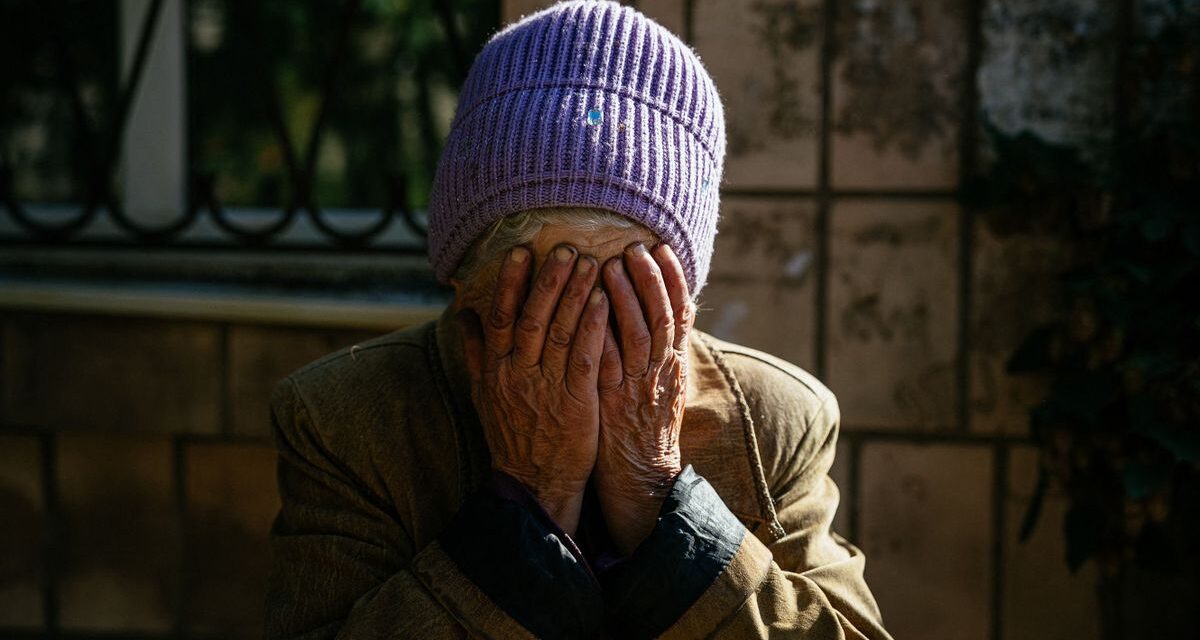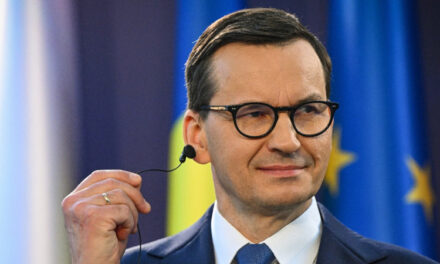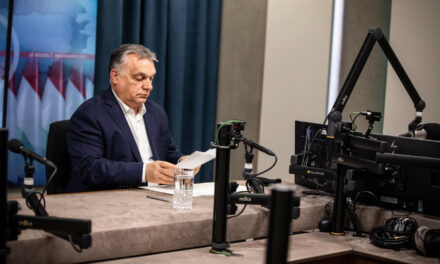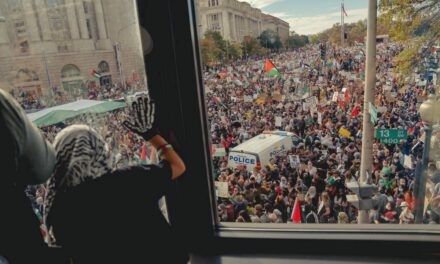Sixty-hour workweeks, forced labor, travel bans, abject poverty, corruption and violence - Ukraine has become a mousetrap from which there is no escape.
We have already become accustomed to the fact that the current conflict in Ukraine is often presented in the Western media as a war between Western-style "freedom and democracy" and Russian-style "authoritarianism and dictatorship", where, of course, "freedom and democracy" is represented by Kiev. We would now leave this narrative and show how the Ukrainian correspondent of an Arab news channel founded in Beirut, Dmitry Kovalevich, shades the picture.
At the beginning of the article, the Al Mayadeen news portal states that Ukraine has a system that has banned all men between the ages of 18 and 60, as well as women working in certain professions, from leaving the country. Exceptions to the travel ban are those unfit for military service, fathers raising three or more minor children (under 16), and caregivers of the disabled.
Then they mention that the regime that came to power in a violent coup in February 2014 banned all opposition political parties in the country a long time ago, and since last year street protests and strikes are not allowed either. Also last year, it adopted a law severely restricting the rights of trade unions.
It is just a side story that our neighbor to the northeast should have held legislative elections in the fall, but this was postponed. It's understandable, since it's one
A poll published in Ukraine in September showed that 78 percent of Ukrainians believe that Zelensky is personally responsible for the corruption in the government and local administration.
However, corruption scandals do not stop very often. Most of the humanitarian aid shipments were reported to have been stolen. Bribes are often paid to avoid mandatory military service or to flee abroad. The military often buys food and other supplies at far above market prices, and the list goes on.
Proposal for forced labor
After that, the submitted proposals are taken into account. In early August, representatives of the Ukrainian president's Servant of the People party introduced a bill in the national legislature (rada) that would require the conscription of all those who were not drafted into armed service into forced labor.
In addition to all of this, there is a serious shortage of skilled workers. Hundreds of thousands of farm workers were conscripted into military service, many of whom were killed or seriously wounded in the senseless war. In addition, about eight million people left the country in the last year and a half. Most of them do not even plan to return in the near future.
Every day, the border guards arrest dozens of "mandatory refugees" using tracking drones generously provided by the West.
Those caught quickly find themselves in the trenches of the hundreds of kilometers of front lines.
Even those who would take up a job are not willing to apply. Since the beginning of the year, company managers have only been able to hire new employees after receiving official approval from the local military enlistment office. It is easy for a man who applied to be a driver to also find himself in the trenches.
Another characteristic of the local labor market is the wage reduction of up to 50 percent. Teachers face pay cuts as the public education budget for 2023 has been slashed from an initial 154 billion hryvnias to 131 billion ($3.5 billion). This is less than the 2022 edition. In addition, most school districts rely on additional funding from local governments, but they are also short on resources. In the capital, Kyiv, according to the news, only allowances were abolished, but in many towns and villages
teachers receive only "survival wages," their income cut from 15 percent to 50 percent, depending on the state of local budgets.
According to a study by the Kyiv School of Economics, municipalities have received half as much income since the Russian occupation as before. Another two-thirds of the communities outside the combat zone also reported a decrease in income.
Crazy inflation
Annual inflation hovers around 30 percent, according to Dmitry Kovalevich, Ukrainian wages today barely cover the price of basic food. And they are already higher than in Russia and the EU countries, where most of the food supply comes from. For this reason, many workers decide to work illegally, many of them, if possible, in several workplaces.
Last year, the authorities tried to solve the shortage of people by tapping the large mass of the unemployed. The officially registered unemployed were sent to military zones to clear rubble, cut down trees, build shelters, etc. This initiative was called the Reconstruction Army. Many people reacted to this by not registering as unemployed, since the benefits were also reduced. Today, the average benefit is around $27 per month, and the maximum benefit is $180 per month, but this is only paid for three months.
A new system of slave labor?
It's called something like this when people only get to meet their basic food needs after work.
Dmitriy Kovalevich quotes the words of the drafters of the law, according to whom the new bill on the mobilization of workers is intended to ensure the operation of the national economy under martial law. At the beginning of August, they started talking about the fact that after the possible termination of military conscription and martial law, conscripts will be prohibited from leaving the country for another three years. Of course, it's understandable, since you will need workers for the reconstruction. It is also certain that millions of men would rush abroad if the borders were opened. Many of their wives and children have already moved out of their country a year and a half ago.
Many would leave for better pay and to get out of the mousetrap that Ukraine has become. Even if it is not really a European solution.
Many believe that the idea that Ukrainian citizens will be barred from leaving the country even after the war is over stems in part from the fact that Ukraine is currently heavily indebted to Western governments and financial institutions. Interest-bearing repayment can only be guaranteed by mercilessly exploiting the population. To achieve this, people must be denied the opportunity to escape from it, and this can rightly be seen as something like slavery or medieval serfdom.
In July of this year, the foreign exchange reserves of the National Bank of Ukraine increased by 6.9 percent to 41.7 billion dollars, which is the highest monthly increase since 1991. However, the largest part of this was not economic growth and increased export revenues, but the 4.7 billion dollars of international support. Most of this came in the form of loans granted by the European Union, the United States, Japan, the IMF and the World Bank, to be repaid in the future.
Bloomberg reported on July 24 that Ukraine needs to bring home 2.8 million female citizens from abroad in order to have a chance of economic recovery after the end of the war. According to one of the experts interviewed, if only half of them returned, it would cost 10 percent of the country's GDP by 2032, i.e. 20 billion dollars a year. These losses far exceed the four-year, $14 billion annual aid package proposed by the EU to Ukraine.
According to the latest estimate of the Ministry of Economy, an additional 4.5 million workers must be attracted to the labor market in the next ten years, but at the current wage level, people would rather leave the country than stay and work.
Dmitriy Kovalevich quotes Ukrainian journalist Diana Panchenko, who wrote on her blog earlier this month: “At the end of the war, a lot of people will still leave. The Ukrainians will be scattered around the world, like the Roma, for example." The journalist was forced to leave Ukraine because of her writings criticizing the government. In his blog post, he also noted that according to UN statistics, most Ukrainians who left the country settled in Russia.
"In Kiev, it is not customary to talk about this, and the reason for this is quite clear."
According to Panchenko, it is also obvious that this does not help to boost population growth. And he said about the end of the war:
"Ukraine has already lost - we have no economy and, even worse, no sovereignty. Today we simply depend on what the West says. We have lost our identity”.
Sixty hour work week
At the end of July, the Ukrainians were also informed of the shocking proposal according to which
the working week can be increased to 60 hours, consisting of six ten-hour days or five 12-hour days.
At least this idea was published by the Eastern Interregional Office of the State Labor Service of Ukraine. In other words, only Sunday would remain as a day of rest. This idea would first be tried out with companies working in critical infrastructure or "defense".
According to current practice, employers often exploit workers beyond the standards established by law. Recently, the Ukrainian State Labor Service was also contacted by a worker whose employer had set the rest period at one day every three weeks and the shift duration at 12 hours in the previous month. The employer claims that this position will remain in place until the end of the year as
during martial law, the number of working hours required for overtime may be unlimited.
Thus, for the average Ukrainian, the Western values of freedom and democracy become an unprecedented neoliberal experiment that abolishes all labor rights and introduces something akin to slavery. The coercive "fight or work" measures of the Ukrainians are presented as a triumph of much-vaunted European values.
Kovalevics also reports on the number of the population based on the publication of the Ukrainian Future Institute. According to E, around 8.6 million people have left the country since the start of the war 18 months ago. Of the 29 million citizens remaining in the country, no more than 9.5 million work. Excluding state-funded jobs, there are about six to seven million workers. Ukraine began its journey towards post-Soviet "independence" in 1991 with a population of 52 million. Since then, the population has been continuously decreasing due to mass emigration.
At the same time, the country's fertility rate also fell dangerously. According to the institute, the average fertility rate is 0.7 children per couple.
(For the population to remain the same, the fertility rate must be greater than 2.) According to forecasts, the number of pensioners in Ukraine will be twice the number of working-age citizens in the coming years.
Featured image: Dimitar Dilkoff / AFP













